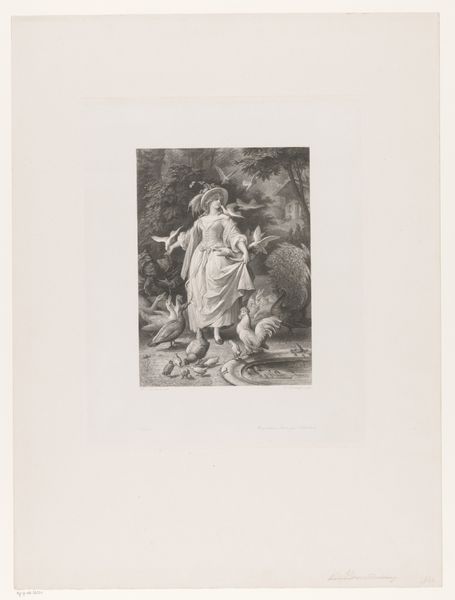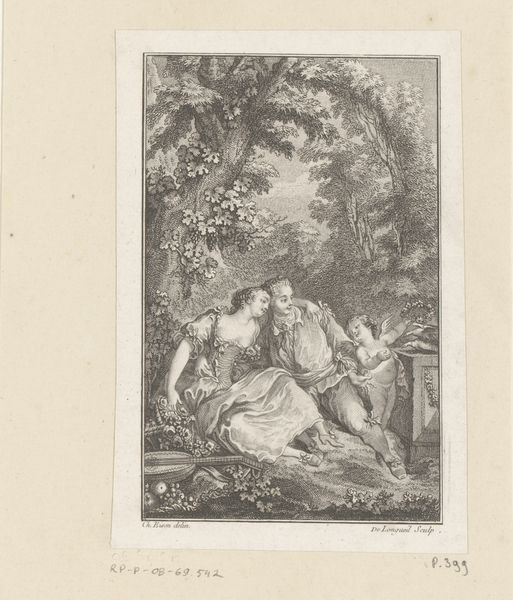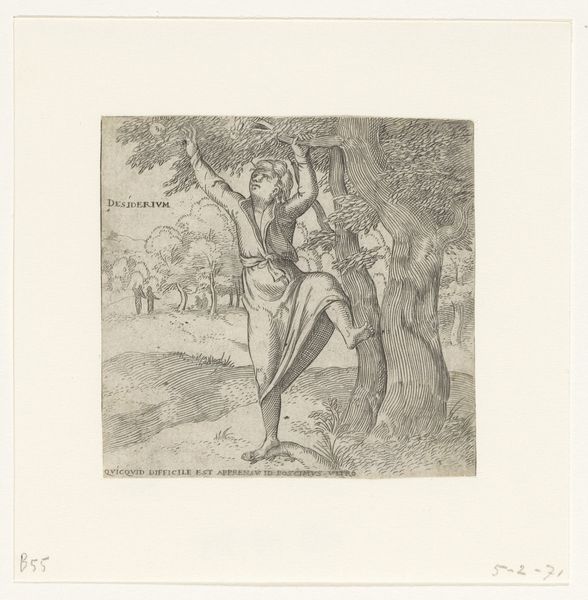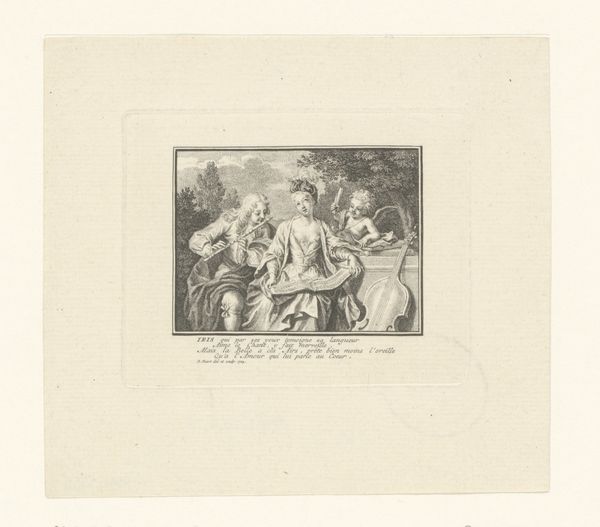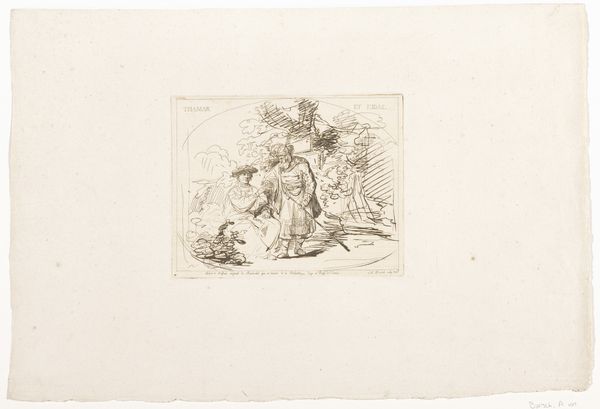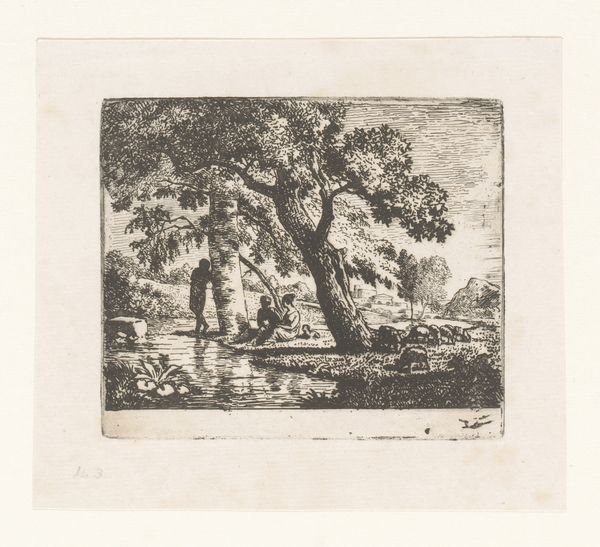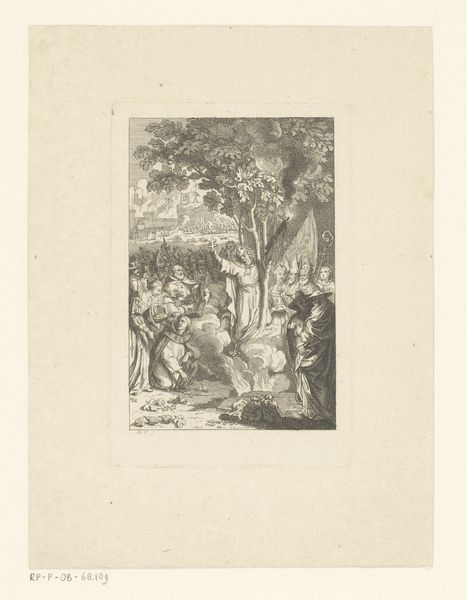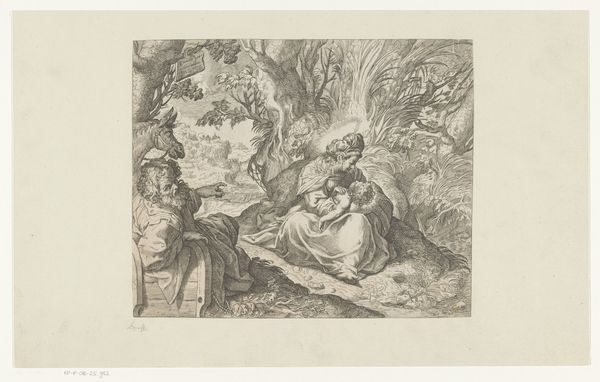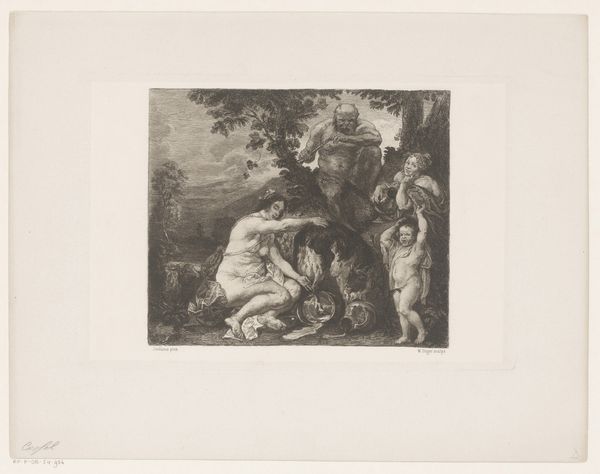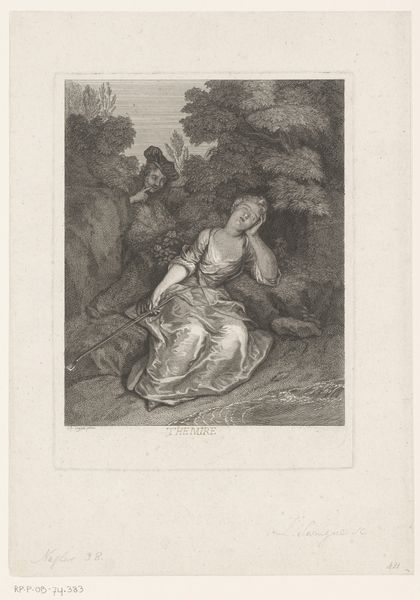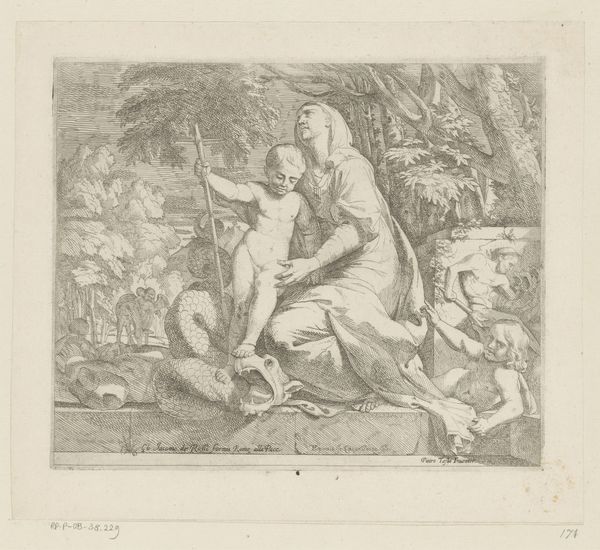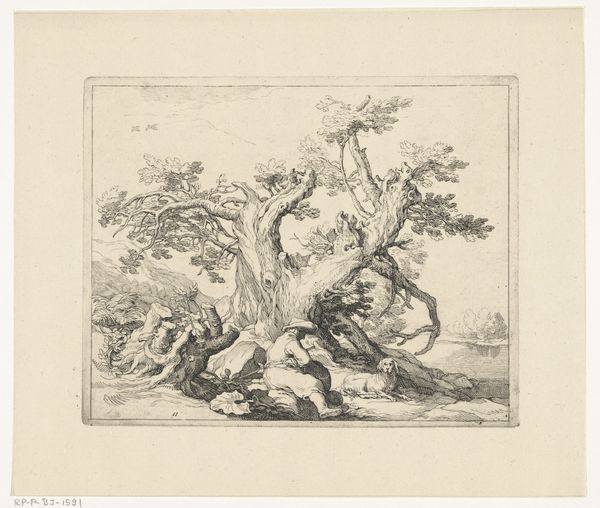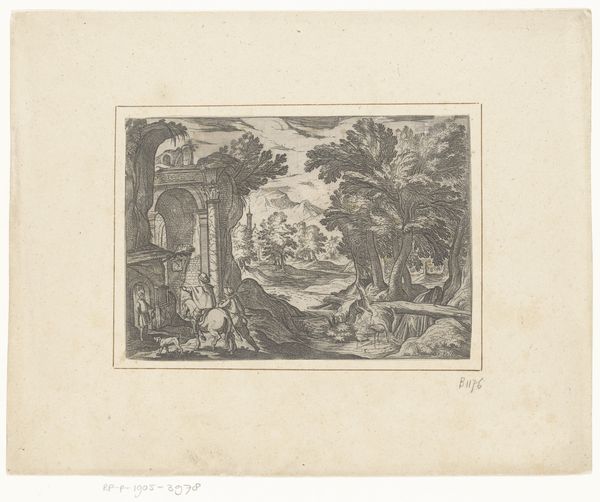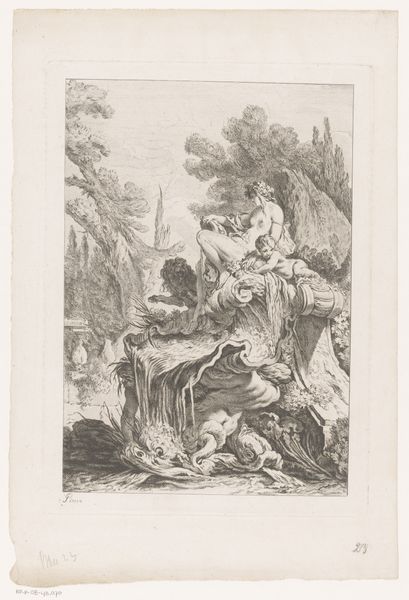
print, engraving
#
allegory
# print
#
old engraving style
#
landscape
#
mannerism
#
figuration
#
botanical drawing
#
history-painting
#
engraving
Dimensions: height 80 mm, width 77 mm
Copyright: Rijks Museum: Open Domain
Enea Vico created this engraving, "Deugd," likely in the mid-16th century, a time when the Renaissance fascination with classical antiquity deeply influenced art and culture. Here, Vico personifies Virtue as a poised woman in classical drapery, set within a landscape that evokes both serenity and strength. The Latin inscription, "Phoenici similis vivit post funera virtus," translates to "Virtue lives after death, like the Phoenix", suggesting virtue's enduring power. The reference to the mythical phoenix is a clue that goes beyond the aesthetic. It speaks to a broader cultural interest in allegories of moral and ethical conduct. Consider how virtue, often depicted as feminine, was used to instruct both men and women in proper roles and behaviors. The image invites reflection on what it means to embody virtue, and how these ideals have shifted across time and cultures.
Comments
No comments
Be the first to comment and join the conversation on the ultimate creative platform.
